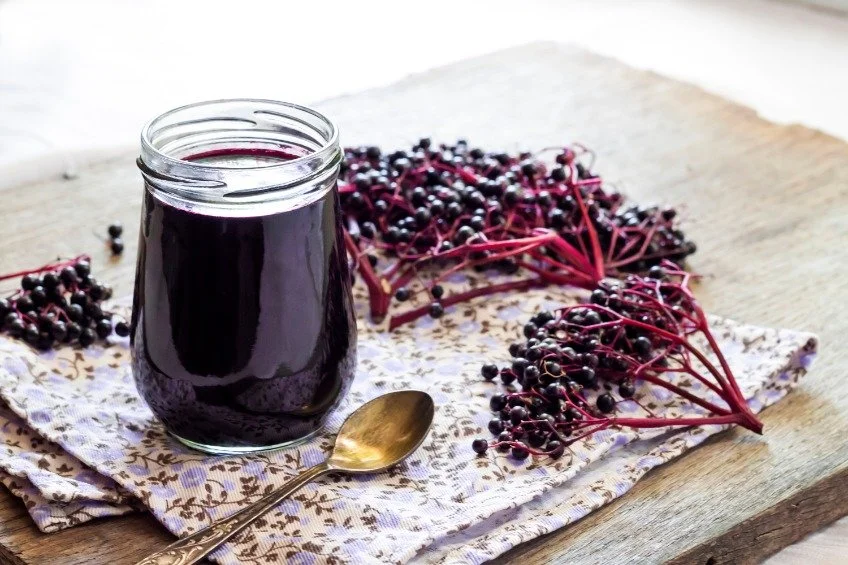Natural Alternatives to Tylenol for Babies & Children
(What to Do Instead of Reaching for Over-the-Counter Medications)
Every parent knows the worry of a feverish baby or a child in pain. For decades, Tylenol (acetaminophen) has been the go-to, but growing concerns about its long-term safety — especially its impact on glutathione and detoxification — have many parents asking: What can I safely give my child instead?
The truth: fevers and mild illnesses are part of building a strong immune system. Not every symptom needs to be suppressed with medication. There are many gentle, natural, and effective ways to support your child’s body while keeping them safe and comfortable. I believe we have too much fear in our society and fear of fevers is just one of those fears. Yes, we should be aware, educated, and act when necessary, however, we need not live in fear.
Understanding Fever in Babies & Children
Fever is the body’s natural defense. It helps fight off infections by making the body less hospitable to viruses and bacteria. Fever is often a good thing.
A fever, defined as a rectal temperature of 100.4°F (38°C) or higher, requires a doctor's call within a certain timeframe, depending on the child's age.
Under 4 months old: Call a doctor immediately if a rectal temperature is 100.4°F (38°C) or higher. Fever in a newborn can indicate a serious infection.
4 to 24 months old: Call if a fever over 102.2°F (39°C) lasts for more than 24 hours without an obvious cause, such as a cold.
2 years and older: Call if a fever persists for more than 72 hours (3 days).
When to seek immediate help:
Fever in a baby under 3 months old.
Fever with lethargy, difficulty breathing, dehydration, seizures, or rash.
Persistent fever lasting more than 3 days.
Remember: The goal isn’t always to eliminate the fever, but to support your child through it safely.
Natural Ways to Support Babies & Children with Fever or Illness
1. Comfort & Cooling Naturally
Dress in light, breathable cotton clothing.
Keep the room cool and airy, not overheated.
Lukewarm sponge baths or a damp washcloth on forehead/neck (never ice cold).
Lots of cuddles and rest — a stressed child recovers slower.
Hydration Is Key
Fever and illness can dehydrate little ones quickly. Offer:
Breastmilk or formula for infants — both hydrate and provide immune support.
Filtered water for older children.
Herbal teas (chamomile, catnip, fennel — all mild and soothing, age-appropriate).
Homemade electrolyte drinks (water, a pinch of sea salt, a splash of lemon, honey for children over 1 year).
Nutrition & Mother’s Diet
For breastfeeding moms: your diet directly affects your baby’s resilience.
Eat anti-inflammatory, nutrient-rich foods: leafy greens, bone broth, fatty fish, eggs, berries.
Avoid processed foods, seed oils, and sugar: they can pass through breastmilk and increase inflammation.
For older children:
Bone broth soups — gentle, hydrating, mineral-rich.
Vitamin C-rich foods — oranges, strawberries, kiwi, bell peppers.
Zinc-rich foods — pumpkin seeds, grass-fed beef, chicken.
Healthy fats — avocado, olive oil, coconut oil, and pastured butter for brain and immune support.
Gentle Herbal & Natural Remedies
Elderberry syrup (over 1 year old): Antiviral and immune-supportive.
Chamomile tea: Calms fussiness, helps with sleep, and eases digestive upset.
Ginger tea (very diluted for older children): Helps with nausea and congestion.
Garlic (in soups or broths): Natural antimicrobial.
Cool mist humidifier: Keeps airways moist and eases breathing during congestion. Make sure to clean these daily so that they don’t develop mold and make the air worse instead of better.
(Always use herbs carefully — small amounts, age-appropriate, and guided by a professional if unsure.)
Elderberry Syrup
Natural Pain & Inflammation Relief
Instead of Tylenol, try:
Magnesium (epsom salt baths for older kids, not infants): Soothes sore muscles and calms the nervous system.
Massage with coconut oil or gentle lavender-infused oil: Relaxes and eases discomfort.
Warm compresses for earaches, or cold compresses for injuries/swelling.
Comforting Notes for Parents
Don’t panic at every fever. It’s the body’s way of healing.
Know the danger signs. Trust your instincts — if your child seems unusually weak, disoriented, or in distress, seek medical care.
Avoid unnecessary medications. Tylenol and ibuprofen have their place but should not be the first reflex.
.Support the body, don’t suppress it. A resilient immune system develops through gentle exposures, not by shutting down every symptom.
NEVER give your child aspirin for a fever. It has been linked to a potentially fatal condition called Reye Syndrome.
Raising a child in today’s world means making informed choices. Instead of reaching for Tylenol at the first sign of fever or fussiness, you can:
Support naturally with hydration, rest, nutrient-dense foods, and herbs.
Optimize your own diet (if breastfeeding) to pass along extra resilience.
Respect the fever as a powerful ally, not an enemy.
Your baby or child’s body is wise — with the right natural care, they can heal, grow stronger, and thrive without relying heavily on medications.



